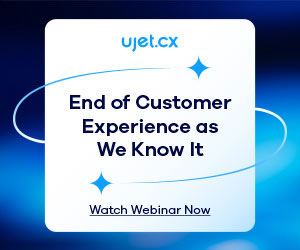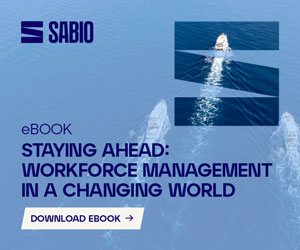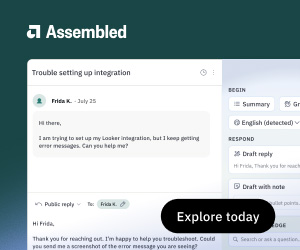In this instalment of Call Centre Helper’s “What I’ve Learned” series, Fernando de Santos Loriente outlines the most important things he has learned during the last 3 years leading the Operations area of the Ibercaja Banco Contact Centre.
Lesson 1 – Think of an Agent as a Teacher
For me, a good teacher is not someone who communicates some knowledge and makes students repeat it, but one who provides tools and conveys the necessary passion for students to delve deeper into the subject. For this reason, the selection, training, and evolution of agents must be addressed.
It is not about solving an issue: it consists in conveying and inspiring the culture of the company as you solve an issue, making the client feel important. Very likely, this way First Call Resolution (FCR) will increase, re-calls will decrease, and Net Promoter Score (NPS) will rise.
Lesson 2 – Take Care of “the Knowledge” of Your Agents Because Forgetting Is Easier Than Learning
Can you imagine a school where textbooks gradually lose pages? Where books go blank? Students who arrive in that school in 2024 will learn less than those who arrived in 2022.

Unfortunately, human beings forget. Moreover, we are constantly forgetting because we are designed to do so. Our sector and business cannot be based on books that lose pages.
Therefore, you must focus everything (technology, resources, processes, etc.) towards your main problem, which is: forgetting.
Intensive use of AI (speech analytics), together with a focused QA Department, can help you find the gaps that some agents might have.
In order to fill those GAPS, design your operations to prevent them from existing.
Design good knowledge databases, tests of infrequent issues, an efficient channel for resolving doubts, etc.
Read 14 Practical Techniques to Improve Knowledge Management to discover how to improve your knowledge base, while also boosting the customer and advisor experience.
Lesson 3 – Learning: Taking Care of Knowledge Means Taking Care of Learning. Each Agent Learns in a Different Way
Learning is a subjective process; therefore, the way a person deals with learning is very different if they must learn something that they must teach to someone else later.
I pose several questions which allow you to visualize the relationship between teacher and agent regarding learning:
- Could you explain this subject so that a child can understand it?
*Could you explain this subject with the words a client uses?
- How would you solve disciplinary issues in a classroom?
*What should you do if a client disrespects you?
- How should you react to an awkward question?
*How could you teach a skill that allows an agent to always show confidence and conviction?
- How could you achieve leadership in a classroom?
*Who leads the conversation? The client or the agent?
Lesson 4 – Culture Reinforces the Triangle Formed by Client–Agent–Company
If your company culture does not take care of and value the relationship between company and employee, your clients will notice it. If the relationship between client and employee is impacted, the relationship between client and company will be impacted too.
There are different tools available to analyse the culture and health of your organization: do use them.
To find out more about how to build a great company culture, read our article: The Importance of Call Centre Culture and How to Improve It
Lesson 5 – Love Data. But Do Not Make Employees Feel Like Numbers
You are lucky to have data about all the activities of your employees, but do not make them feel like they are numbers because of it. Instead, help them to understand why you use data.
However, keep measuring the actions you implement. We are lucky to be in an industry where any decision or action can be measured, so use it responsibly. In fact, any company could use a contact centre as a lab for testing the management of their workforce.
Lesson 6 – Middle Management Are the Key for Any Process or Change
Why are they the key? Because they are the two-way pipes of information and culture. If the pipe is not well maintained at the top, it will end up clogging. If middle management is not taken care of properly, or you do not make sure they know you value them, they will not scale information up and down, and can even become your greatest problem.
When you implement a change, it must “flow” quickly and with the same power (or more) it had when it was designed. To achieve this, middle management must feel good conveying ideas and be efficient in the process.
In Summary

In my opinion, if we turn agents into teachers, the future of this sector is guaranteed.
To achieve this, take care of their knowledge and learning, and work on and take care of culture (also of data culture), so that you have a committed middle management and a happy workforce who treat clients well.
Written by: Fernando de Santos Loriente is Jefe de Operaciones at Ibercaja Connect.
For more great advice from industry experts, read our articles:
- What I’ve Learned From Running a Contact Centre – Know Your Stats
- 16 Key Components of a Digital Customer Transformation Strategy
- 12 Shift-Planning Techniques
Author: Guest Author
Reviewed by: Robyn Coppell
Published On: 20th Apr 2022 - Last modified: 7th Jan 2026
Read more about - Call Centre Management, Advice, Culture, Employee Engagement, Knowledge Management, Management Strategies, Team Management, Training and Coaching





































